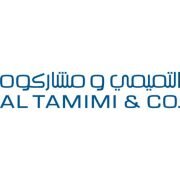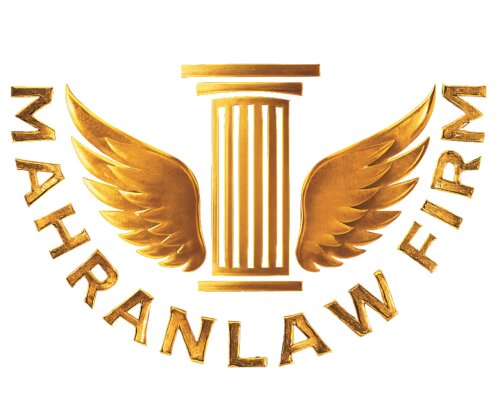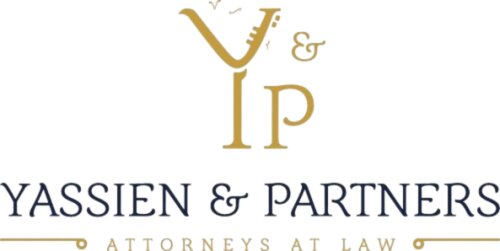Best Nonprofit & Charitable Organizations Lawyers in Agouza
Share your needs with us, get contacted by law firms.
Free. Takes 2 min.
List of the best lawyers in Agouza, Egypt
About Nonprofit & Charitable Organizations Law in Agouza, Egypt
Nonprofit and charitable organizations in Agouza operate within the larger legal framework that governs associations, foundations and civil society across Egypt. Agouza is a district within Giza governorate and organizations there must comply with national laws as well as local administrative rules and procedures administered by the Giza Social Solidarity Directorate and relevant Agouza district offices. The legal framework sets out how to form, register, govern, fund, operate and dissolve nonprofit entities, and it also regulates reporting, auditing, public fundraising and acceptance of foreign grants.
Practically this means that a nonprofit or charity that wishes to work in Agouza must meet national registration requirements, obtain any local permits needed for specific activities or fundraising, keep accurate financial and membership records, and follow rules about public events and communications. Authorities supervise these matters to protect beneficiaries and donors, to ensure transparency, and to prevent misuse of funds.
Why You May Need a Lawyer
Working with a lawyer who understands nonprofit law can reduce legal risk, speed up registration and compliance, and help protect the organization and its leaders. Common situations where legal help is useful include:
- Setting up the organization: drafting bylaws or statutes, determining the legal form that best fits the mission, preparing the registration file and advising on required founding documents.
- Registration problems: responding to requests for additional documentation, handling delays or refusals from the social solidarity authorities, and filing appeals where appropriate.
- Governance issues: designing board structures, conflict-of-interest policies, membership rules, and procedures for meetings, elections and decisions.
- Funding compliance: ensuring lawful acceptance and reporting of domestic donations, public fundraising campaigns and foreign grants, and advising on banking or foreign exchange approval requirements.
- Employment and volunteer law: drafting contracts, complying with labor and social insurance obligations, and addressing disputes with staff or volunteers.
- Tax and exemptions: applying for any tax privileges available to charitable entities and maintaining compliance with tax reporting rules.
- Property and contracts: buying, leasing or securing premises, negotiating service agreements, and ensuring asset use complies with nonprofit restrictions.
- Investigation or enforcement: handling inspections, responses to administrative sanctions, representation in criminal or administrative proceedings, and litigating disputes in administrative or civil courts.
Local Laws Overview
The national law that governs associations and nonprofit activity provides the foundation for operating in Agouza. Key legal aspects to understand include the following general points:
- Registration and legal form - Nonprofits generally must register with the Ministry of Social Solidarity or its local directorates. The law sets out the required documents such as statutes, minutes of the founding meeting, lists of founders, identification documents and statements of the organization s objectives and planned activities. Registration confers legal personality and is required to open bank accounts and enter contracts in the organization s name.
- Supervisory framework - The Ministry of Social Solidarity and its local offices supervise nonprofit activity. This oversight covers compliance with the statutes, financial management, public fundraising, foreign grants and use of premises. Local directorates coordinate directly with district authorities in places such as Agouza.
- Reporting and audits - Registered nonprofits must keep proper accounting records and prepare periodic financial reports. Some organizations must submit annual financial statements and activity reports to the supervising authority. Depending on size and legal requirements, financial statements may need external audit.
- Public fundraising and events - Public appeals for donations, fundraising events and collection campaigns usually require prior notification or authorization from the appropriate authority. There are specific rules on how and where fundraising can occur and how funds must be managed and reported.
- Foreign funding - Accepting foreign grants is regulated. Notifications to or approvals from authorities and banking controls may be required, particularly for substantial grants. Organizations must document the purpose of foreign funds and comply with any conditions attached to them.
- Tax and fiscal treatment - Nonprofit entities may be eligible for tax benefits or exemptions for certain activities, but eligibility depends on compliance with registration, reporting and permitted uses of income. Donations may have different tax treatments for donors and recipients, so proper bookkeeping and legal advice can be important.
- Criminal and administrative sanctions - Operating without registration, misusing funds, working outside authorized purposes, or violating fundraising and foreign-funding rules can lead to administrative sanctions, fines, suspension of activities, seizure of assets or criminal charges against responsible persons. The law also provides administrative and judicial remedies to challenge decisions by authorities.
- Local permits and municipal rules - Activities such as food distribution, health services, construction or public gatherings may require permits from local municipal or governorate bodies in Agouza. Zoning, health and safety, and municipal regulations must be followed for premises used by the organization.
Frequently Asked Questions
How do I register a nonprofit in Agouza?
Registration follows the national procedures administered locally by the Ministry of Social Solidarity through the Giza directorate. You need a founding meeting, approved statutes or bylaws, a list of founders and their IDs, minutes of the meeting, and a clear statement of activities. A lawyer or a knowledgeable local consultant can prepare the file and submit it to the relevant office on your behalf.
How long does registration usually take?
Processing time varies depending on the completeness of the file and the workload of the local authority. It can range from a few weeks to several months. Delays often result from missing documents, unclear statutes or questions about the organization s activities.
Can a nonprofit in Agouza receive foreign donations?
Yes, but acceptance of foreign funding is regulated. Organizations should document the source and purpose of foreign funds and follow any notification or approval procedures required by authorities and banks. Legal advice is recommended to ensure compliance with foreign exchange and transparency rules.
Do nonprofits have to prepare audited financial statements?
Many registered nonprofits must prepare annual financial reports and maintain accurate accounting. Depending on size, type and legal requirements, an external audit may be required. Even when not mandatory, an audit can improve credibility with donors and authorities.
What restrictions apply to public fundraising and events?
Public fundraising campaigns, street collections, charity events and online fundraising generally require prior notice or authorization. There are rules on where and how funds can be collected, how receipts are issued and how funds are allocated. Check with the local social solidarity office before starting any public campaign.
Can a nonprofit own or lease property in Agouza?
Yes, registered nonprofits can enter leases and own property subject to applicable civil and administrative laws. Use of property must align with the organization s stated objectives and legal restrictions. Large purchases or property use that departs from the mission may invite review by authorities.
What governance documents do I need?
Core governance documents include the statutes or bylaws, founding minutes, internal policies such as conflict-of-interest and procurement rules, and records of board decisions and general assembly meetings. These documents establish legal authority, define roles and processes, and are needed for registration and inspections.
What are common legal risks for nonprofit leaders?
Risks include personal liability for unlawful acts, sanctions for operating outside registered objectives, penalties for improper use of funds, and criminal exposure in cases of fraud or money laundering. Good governance, clear recordkeeping and legal guidance reduce these risks.
How do I dissolve a nonprofit or change its objectives?
Dissolution and major changes to the statutes normally require approval from the organization s general assembly and must be registered with the authority. Assets on dissolution are typically transferred according to the statutes and legal provisions. Any change of objectives must be reflected in amended statutes and approved by the supervising body.
Where can I appeal if a registration or permit is denied?
Administrative decisions can often be challenged through administrative procedures and, if needed, by filing cases in the administrative courts. A lawyer can advise on the best path and prepare necessary appeals or lawsuits.
Additional Resources
- Ministry of Social Solidarity - the national supervisory authority for associations and nonprofit entities and the main source for registration and regulatory guidance.
- Giza Governorate - the governorate office and the Giza Social Solidarity Directorate handle local registration and supervision in Agouza and surrounding districts.
- Local Agouza district office - for municipal permits, event approvals and local regulatory matters affecting premises and public activities.
- Egyptian Tax Authority - for advice on tax registration, exemptions and filing obligations for nonprofit entities.
- Central Bank of Egypt and banking institutions - for rules on foreign funds, foreign exchange and opening organizational bank accounts.
- Administrative courts and legal aid clinics - for guidance on administrative appeals and litigation if you encounter regulatory refusals or sanctions.
- Professional associations of lawyers and nonprofit consultants - to find a lawyer or advisor experienced in civil society, fundraising law and compliance.
Next Steps
If you need legal assistance for a nonprofit or charitable project in Agouza, consider the following practical steps:
- Clarify your mission and activities - prepare a short statement of purpose and a basic plan of operations and budgets.
- Gather founding documents - identify potential founders, collect their identification, prepare draft statutes and record minutes of the founding meeting.
- Consult a specialist lawyer or advisor - seek a lawyer who knows nonprofit law and has experience with the Ministry of Social Solidarity and the Giza directorate to prepare and review your registration file.
- Prepare compliance systems - set up basic bookkeeping, records for donations, internal governance policies and a compliance calendar for reports and audits.
- Contact the local social solidarity office - confirm the specific documents and procedures required in Giza and any local rules in Agouza that may apply to your activities or premises.
- Plan fundraising legally - seek approval or notifications for public or online fundraising in advance and document all receipts and expenditures carefully.
- Keep open communication with authorities - responding promptly to requests for clarification or additional documents reduces the risk of delays or sanctions.
Taking these steps and getting early legal advice will improve your chances of a successful registration and sustainable, lawful operations in Agouza. If you are unsure where to start, a short consultation with a lawyer can provide a clear checklist tailored to your organization s goals and circumstances.
Lawzana helps you find the best lawyers and law firms in Agouza through a curated and pre-screened list of qualified legal professionals. Our platform offers rankings and detailed profiles of attorneys and law firms, allowing you to compare based on practice areas, including Nonprofit & Charitable Organizations, experience, and client feedback.
Each profile includes a description of the firm's areas of practice, client reviews, team members and partners, year of establishment, spoken languages, office locations, contact information, social media presence, and any published articles or resources. Most firms on our platform speak English and are experienced in both local and international legal matters.
Get a quote from top-rated law firms in Agouza, Egypt — quickly, securely, and without unnecessary hassle.
Disclaimer:
The information provided on this page is for general informational purposes only and does not constitute legal advice. While we strive to ensure the accuracy and relevance of the content, legal information may change over time, and interpretations of the law can vary. You should always consult with a qualified legal professional for advice specific to your situation.
We disclaim all liability for actions taken or not taken based on the content of this page. If you believe any information is incorrect or outdated, please contact us, and we will review and update it where appropriate.













